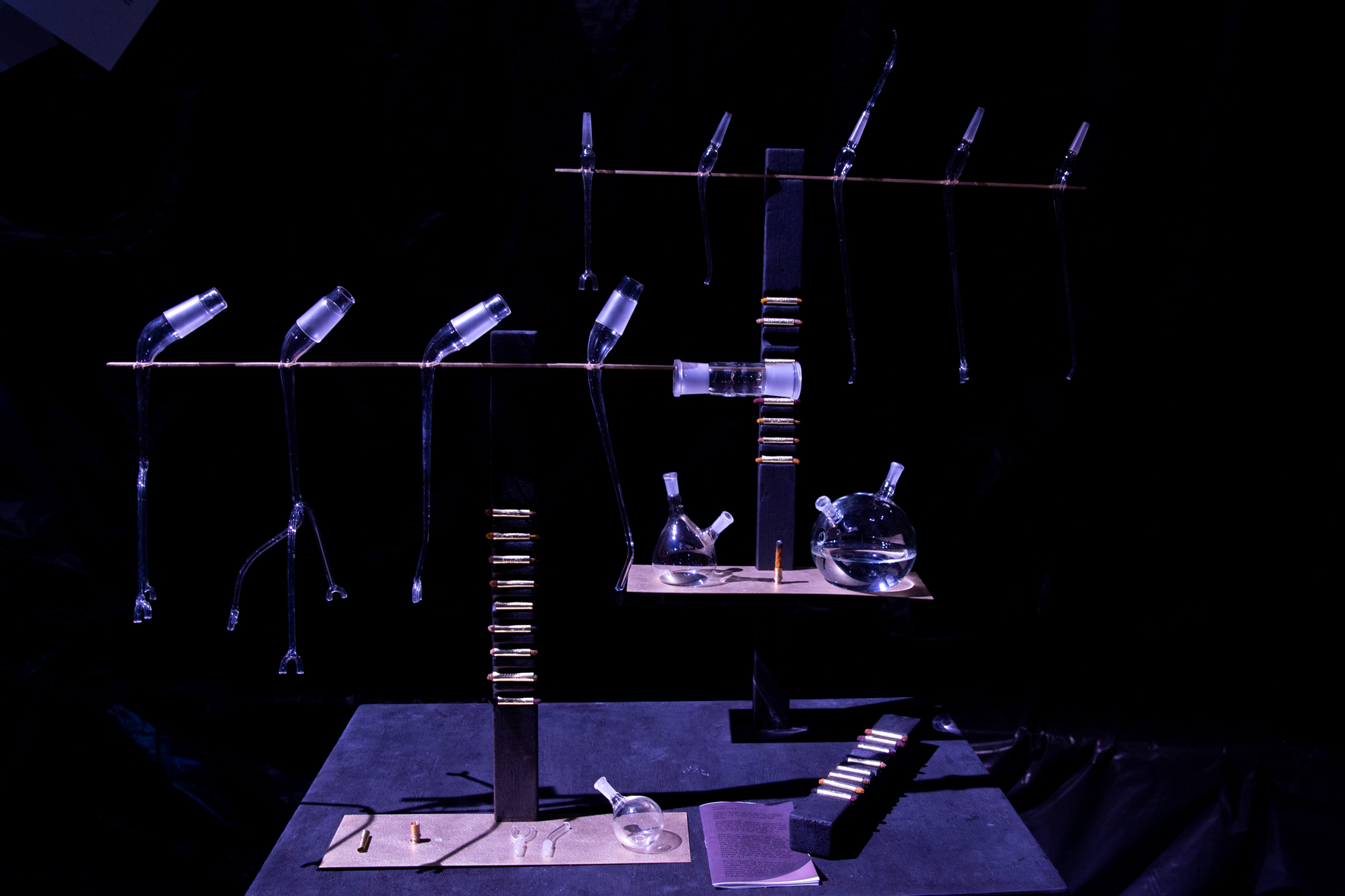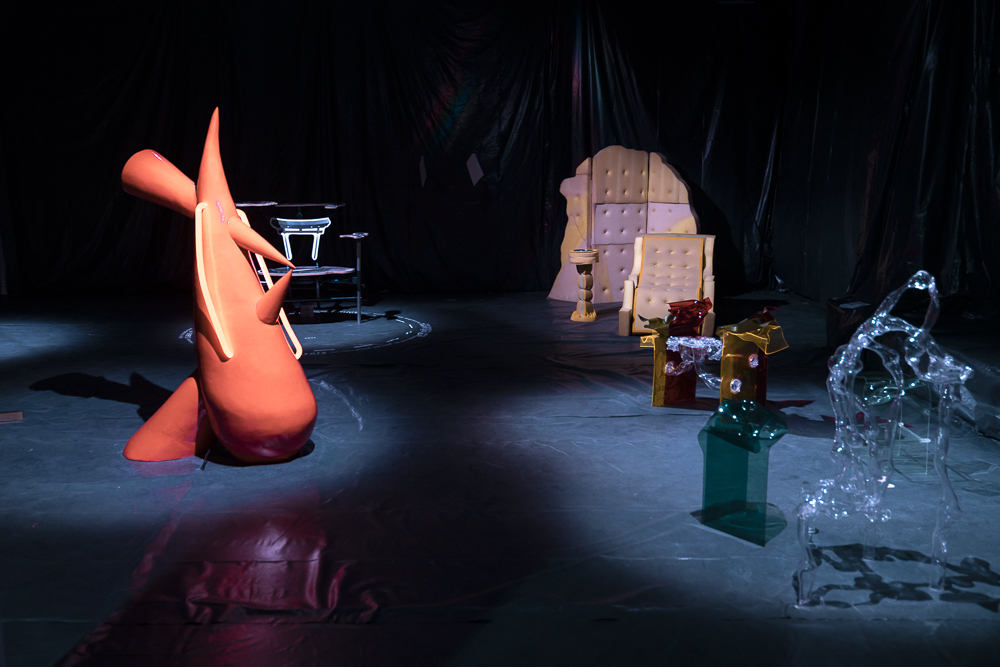Hannah Kuhlmann is an interdisciplinary designer and also maintains a curatorial practice, in which she regularly organizes exhibitions that create spaces for dialogue and exchange between local and international positions.
Since 2015, she has curated numerous exhibitions, especially during Passagen Cologne. In 2018, the exhibition “Homo Ludens” received the Passagen Prize for Best Exhibition Design and Concept. In 2020, she founded the project space 101PS in Cologne as a framework to bring together and further develop her curatorial practice.
She initiated Many to Many, a working group of ten international artists who developed several exhibitions together, including projects in a former monastery on the Mosel and at Schloss Hollenegg in Austria. She is also part of Blow Shops, a collective that experiments with new retail concepts and presents exhibitions across European cities — including the Collectible Fair in Brussels, NHO Girl in Amsterdam, as well as in Brussels and Düsseldorf, where the group is based.
In addition, she organizes an annual exhibition at 101PS called Apophoreta, a Christmas show that highlights younger designers and affordable objects.
Her exhibitions often emerge from temporary collectives and function as open platforms for collaboration. If you are interested in developing projects together, feel free to get in touch.
> 101PS PROJECT SPACE
Since 2015, she has curated numerous exhibitions, especially during Passagen Cologne. In 2018, the exhibition “Homo Ludens” received the Passagen Prize for Best Exhibition Design and Concept. In 2020, she founded the project space 101PS in Cologne as a framework to bring together and further develop her curatorial practice.
She initiated Many to Many, a working group of ten international artists who developed several exhibitions together, including projects in a former monastery on the Mosel and at Schloss Hollenegg in Austria. She is also part of Blow Shops, a collective that experiments with new retail concepts and presents exhibitions across European cities — including the Collectible Fair in Brussels, NHO Girl in Amsterdam, as well as in Brussels and Düsseldorf, where the group is based.
In addition, she organizes an annual exhibition at 101PS called Apophoreta, a Christmas show that highlights younger designers and affordable objects.
Her exhibitions often emerge from temporary collectives and function as open platforms for collaboration. If you are interested in developing projects together, feel free to get in touch.
> 101PS PROJECT SPACE
> BLOWSHOP
> GET IN TOUCH
101PS PROJECT SPACE
2020–TODAY
COLOGNE
2020–TODAY
COLOGNE
BLOW SHOP
2021–TODAY
ANTWERP
AMSTERDAM
BERLIN
BRÜSSEL
COLOGNE
DUSSELDORF
2021–TODAY
ANTWERP
AMSTERDAM
BERLIN
BRÜSSEL
COLOGNE
DUSSELDORF
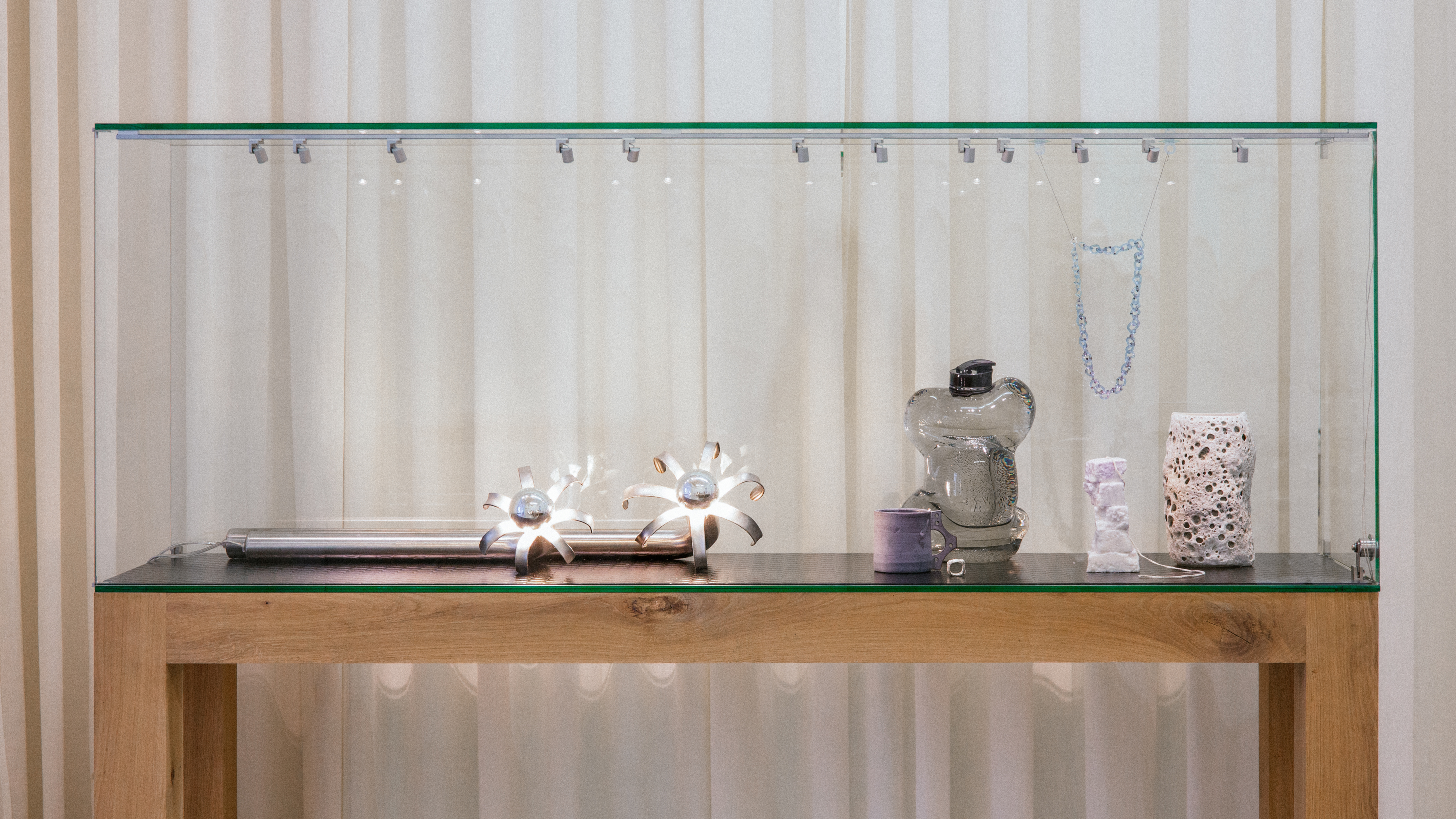
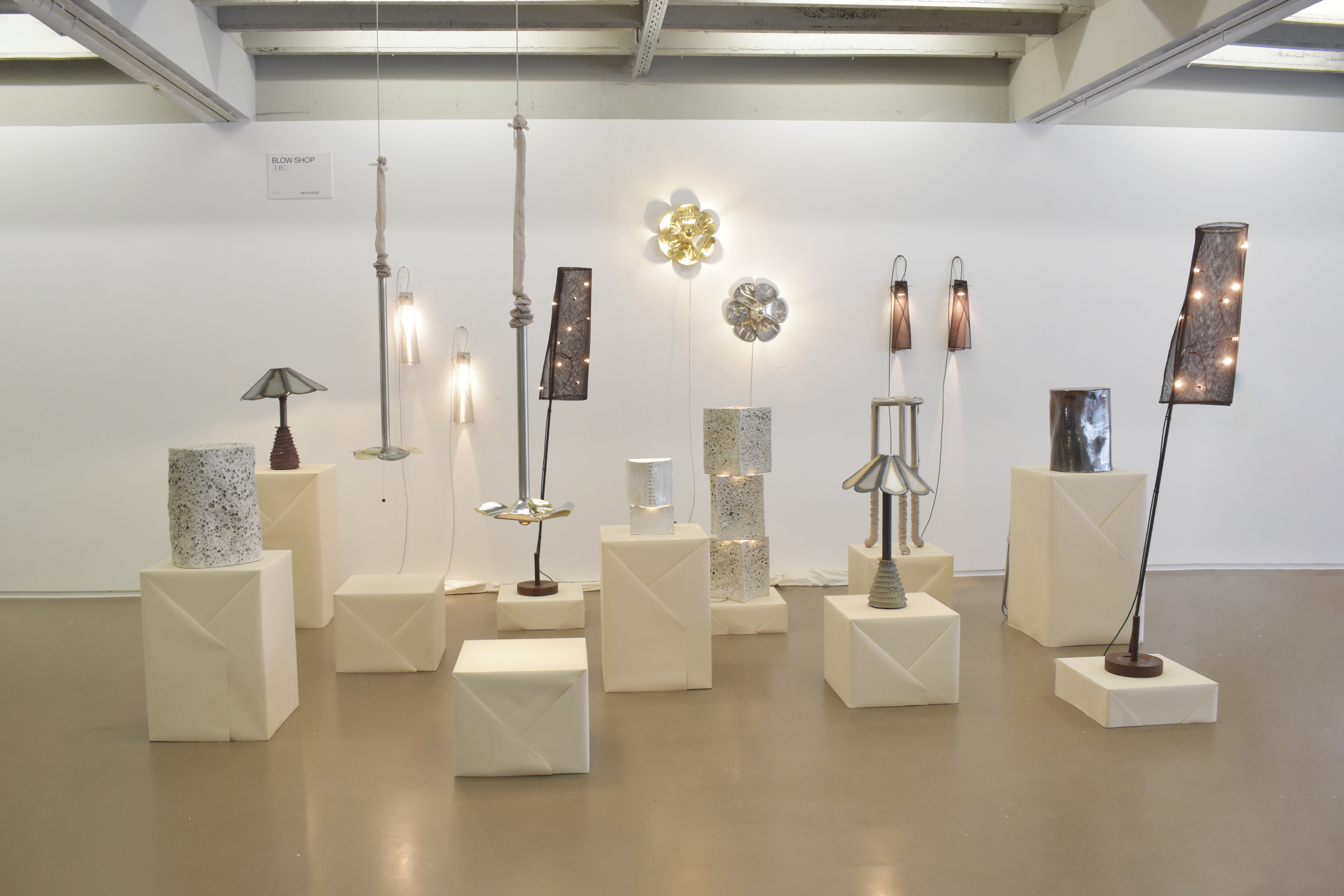
A temporary destination for functional objects
BLOW SHOP is an ever-evolving store concept connecting creatives from various backgrounds under the umbrella of a unique retail experience.
It is an independent, self-initiated stage that focuses on presenting collectible designs and limited edition objects whose functionality gives way to their aesthetics. Reinventing traditional retail experience lies at the heart of the concept, therefore all exhibited objects are for sale during temporary opening hours. The jointly organized format stems from the idea of creating a place for networking and the positioning of up-and-coming designers. After the first edition in Düsseldorf in December 2021, and five following editions in Berlin, Antwerp and Cologne, BLOW SHOP continues to gather an extended list of participants from various disciplines ranging from fashion to jewelry to object design.
BLOW SHOP is an ever-evolving store concept connecting creatives from various backgrounds under the umbrella of a unique retail experience.
It is an independent, self-initiated stage that focuses on presenting collectible designs and limited edition objects whose functionality gives way to their aesthetics. Reinventing traditional retail experience lies at the heart of the concept, therefore all exhibited objects are for sale during temporary opening hours. The jointly organized format stems from the idea of creating a place for networking and the positioning of up-and-coming designers. After the first edition in Düsseldorf in December 2021, and five following editions in Berlin, Antwerp and Cologne, BLOW SHOP continues to gather an extended list of participants from various disciplines ranging from fashion to jewelry to object design.
MANY–TO–MANY
2021–2022
SCHLOß HOLLENEGG
MOUCHES VOLANTES
GOLD+BETON
2021–2022
SCHLOß HOLLENEGG
MOUCHES VOLANTES
GOLD+BETON
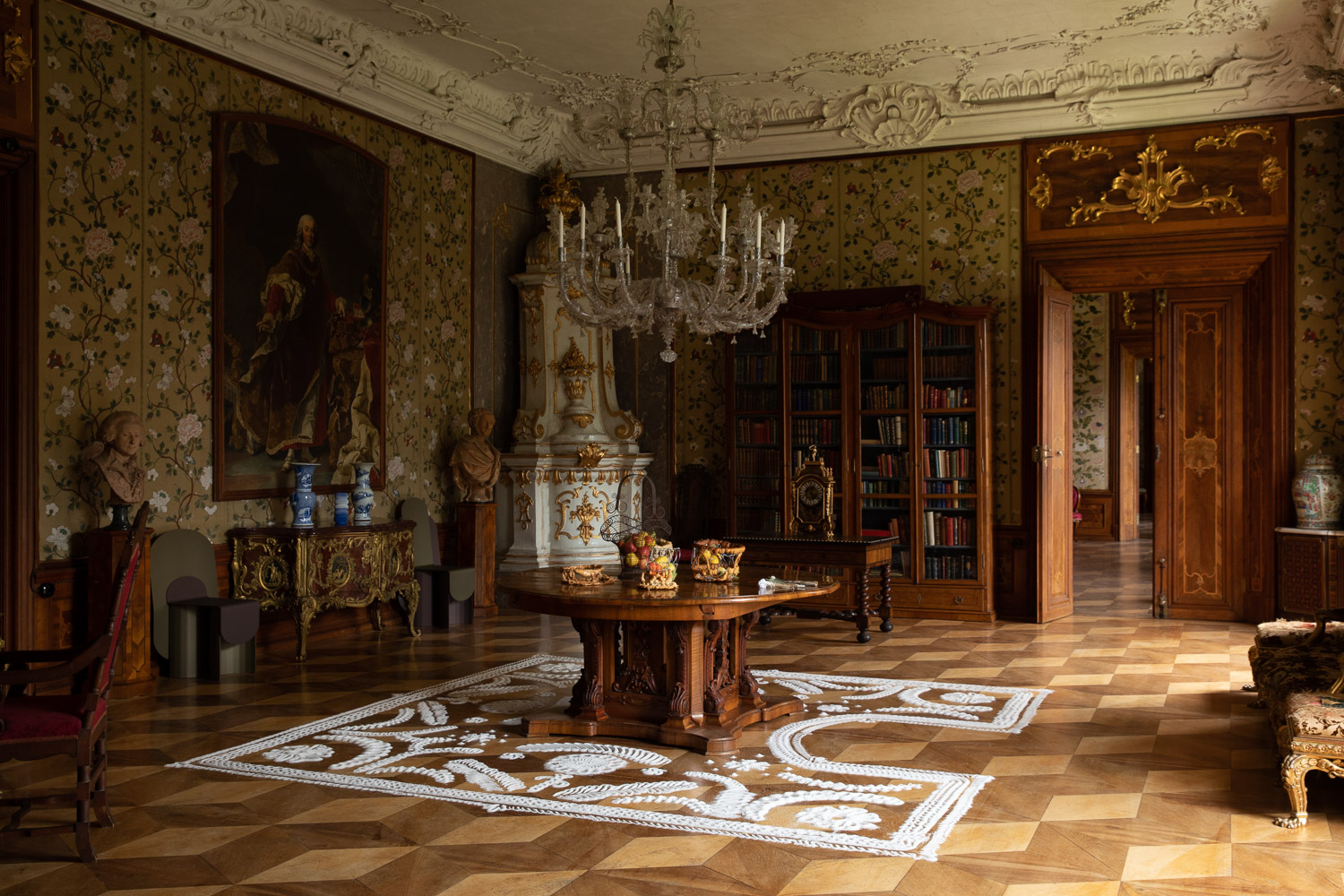
Many-to-Many is a group of 9 female designers, Anne-Sophie Oberkrome, Clara Schweers, Delphine Lejeune, Hannah Kuhlmann, Jenna Kaes, Juliana Maurer, Kurina Sohn, Lisa Ertel & Tatjana Stürmer.
The collective of 9 female designers hold a residency as part of the exhibition “EAST to WEST” at Schloss Hollenegg.
Each of them have a different background within their own practice, a different approach in their own story but in a way, they all share similar interests.
As a collective, they aim to explore new approaches for an interdisciplinary exchange and a symbiotic design process. Many–to–Many's approach is to give space to female realities and to facilitate moments of collective dreaming that broaden our imagination and will lead us into alternative futures.
The collective of 9 female designers hold a residency as part of the exhibition “EAST to WEST” at Schloss Hollenegg.
Each of them have a different background within their own practice, a different approach in their own story but in a way, they all share similar interests.
As a collective, they aim to explore new approaches for an interdisciplinary exchange and a symbiotic design process. Many–to–Many's approach is to give space to female realities and to facilitate moments of collective dreaming that broaden our imagination and will lead us into alternative futures.
WERKSTÜCK – PIECE OF WORK
19.–29.01.2023GOLD+BETON
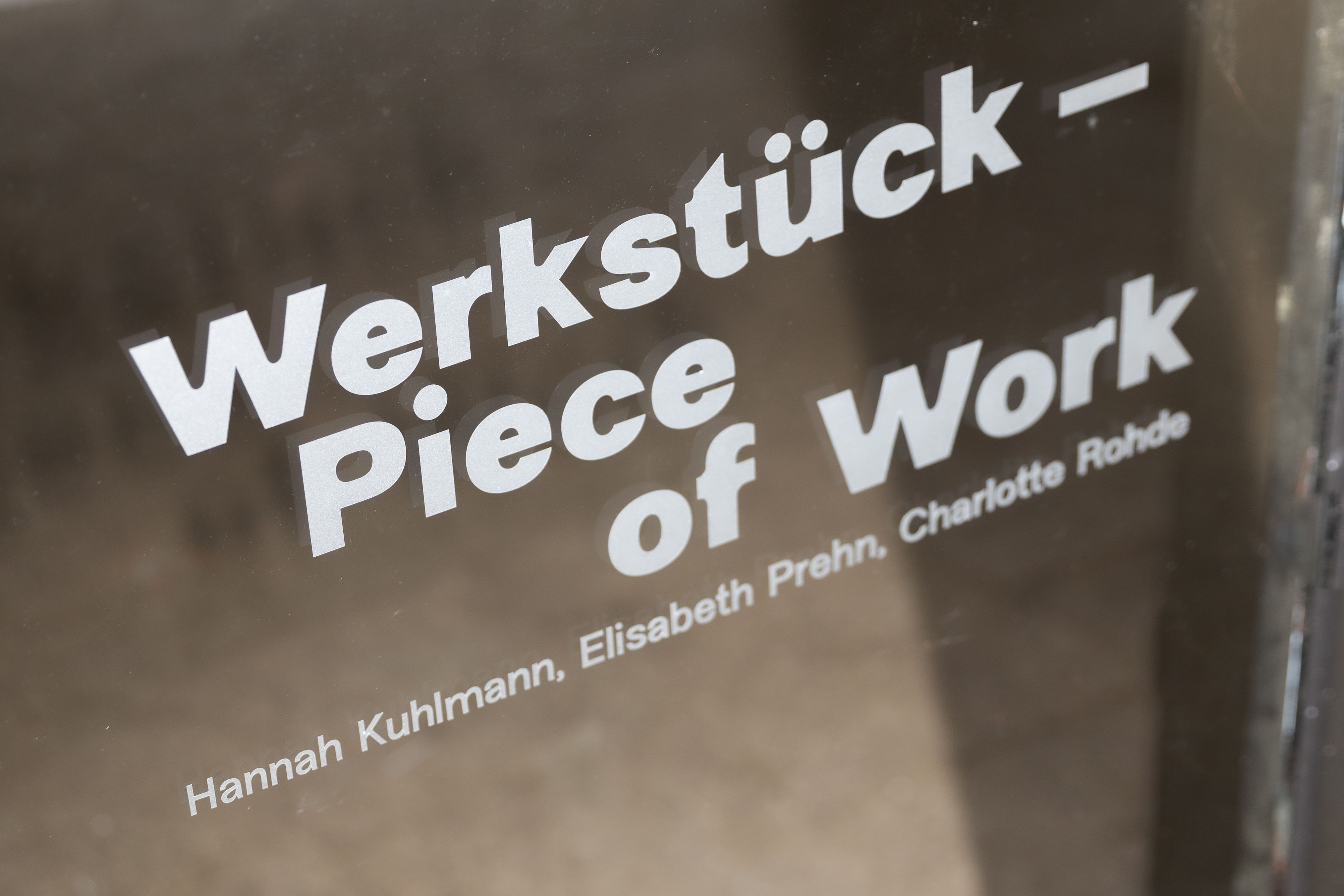
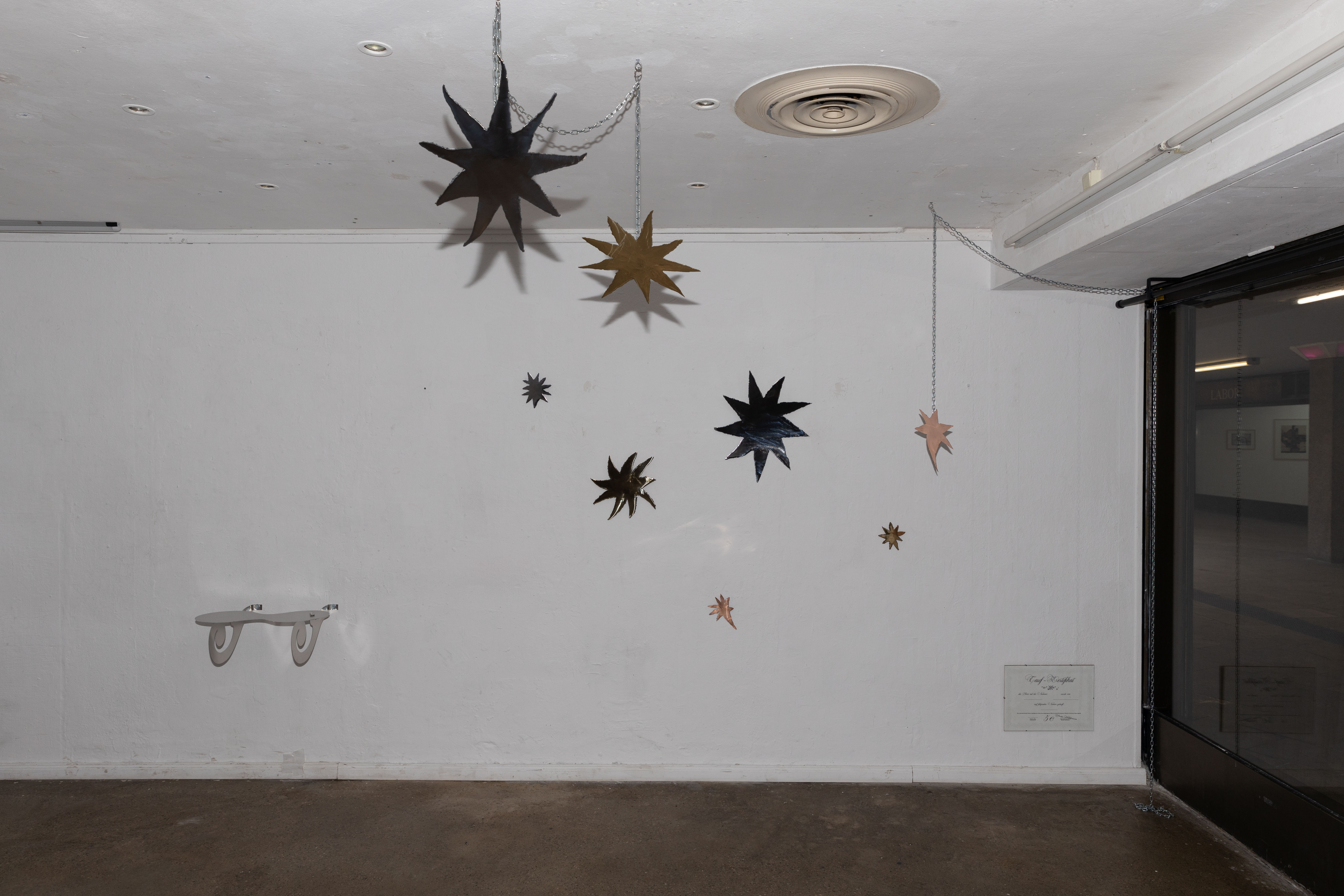
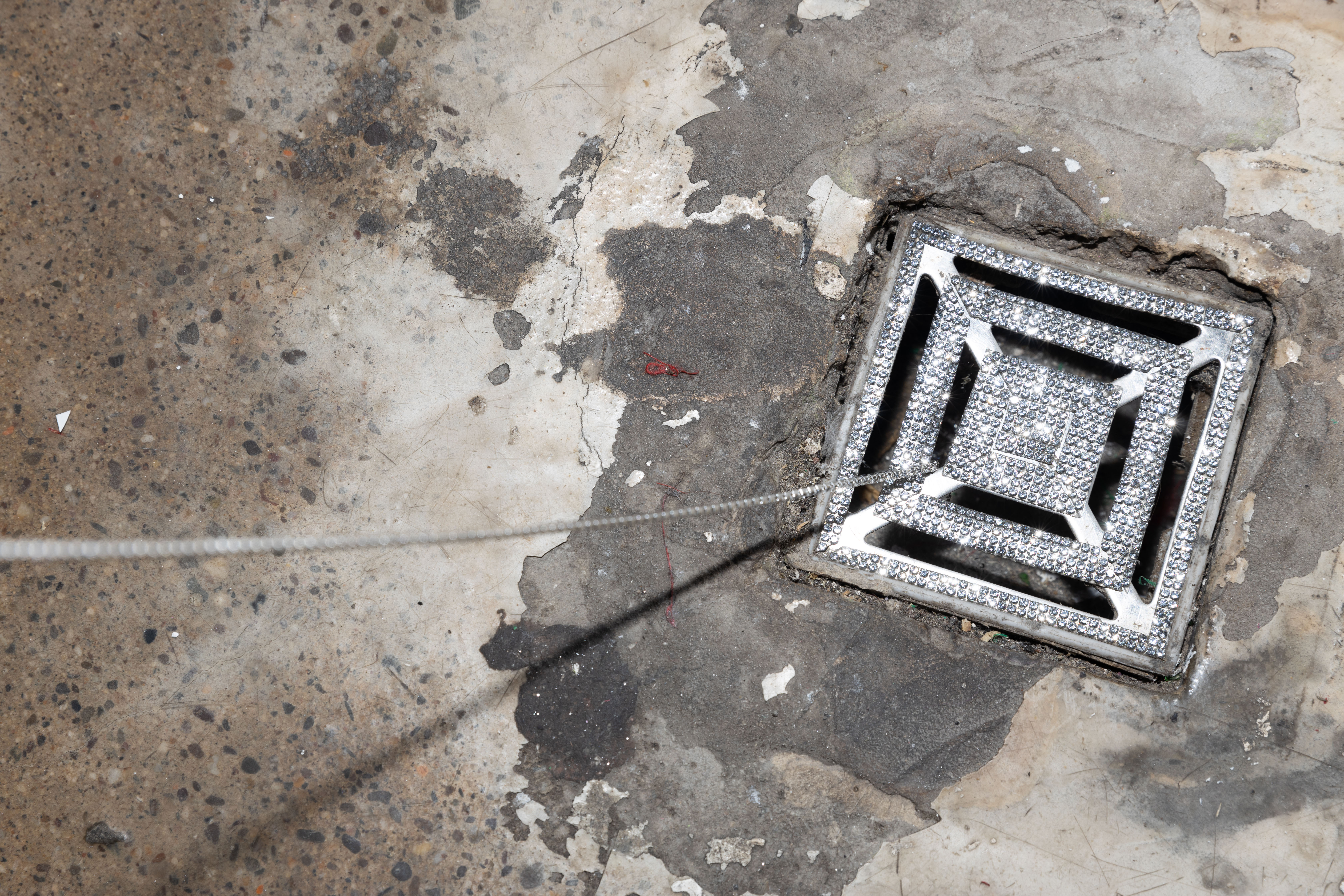
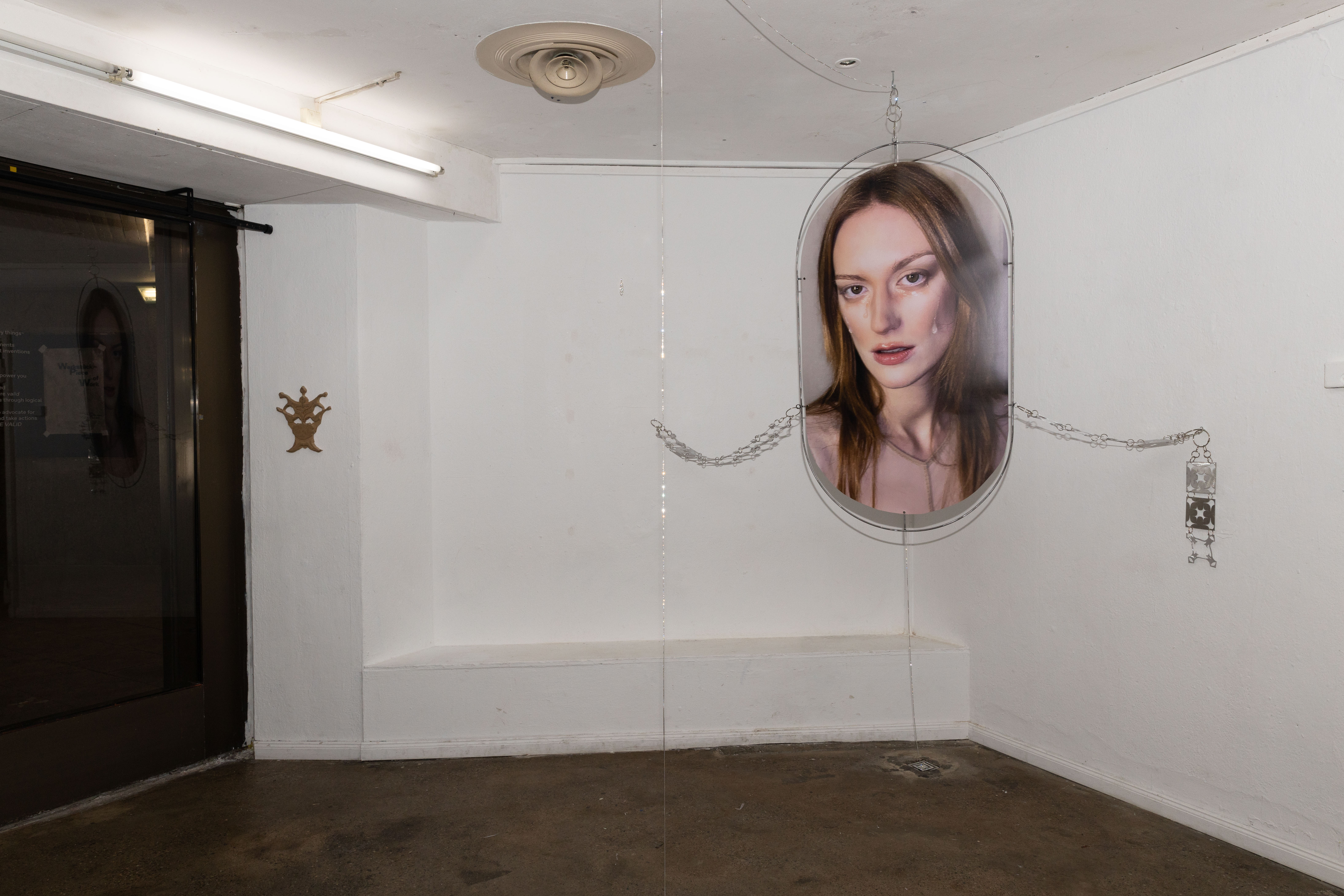
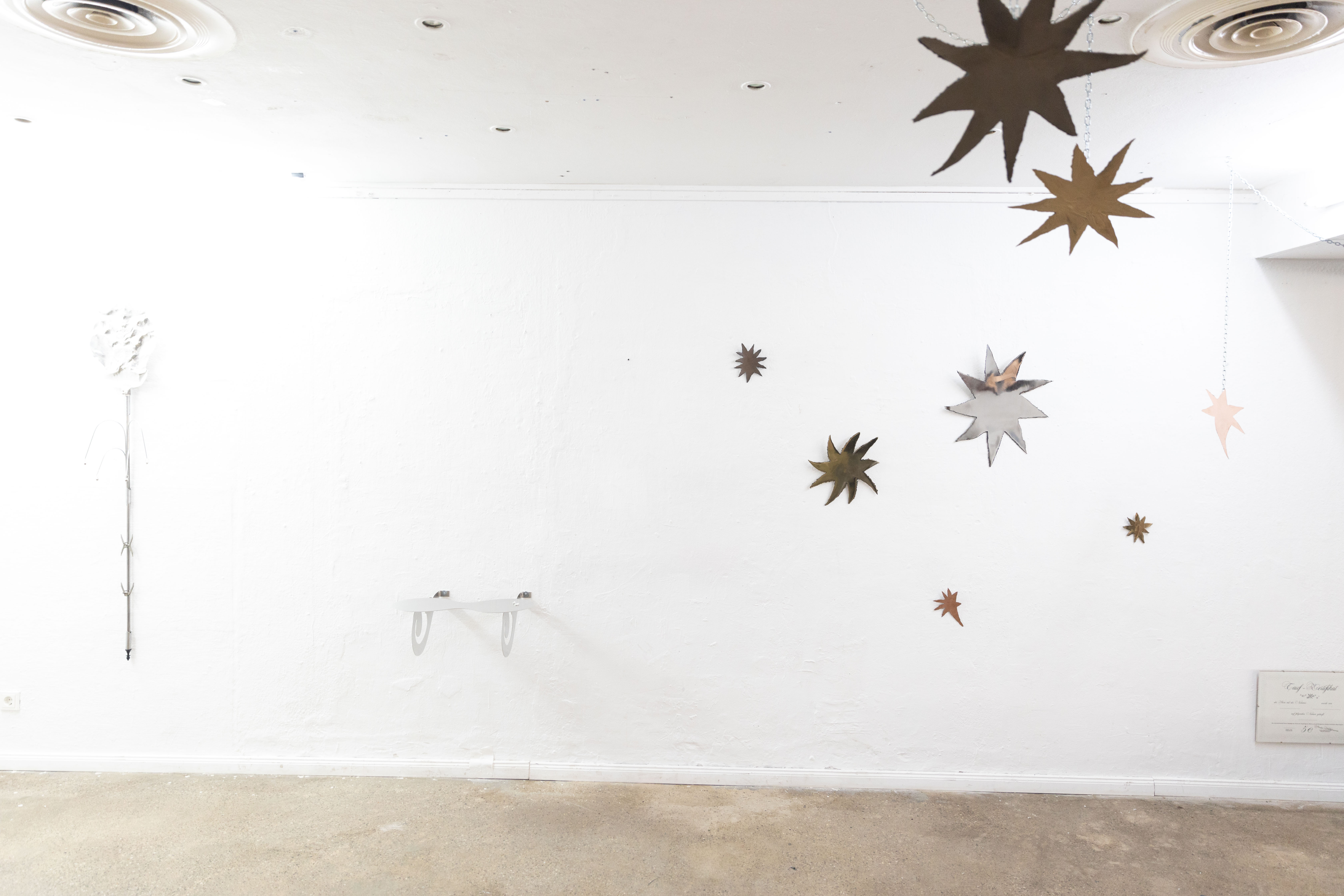
The better version of ourselves is born with storytelling. May it be in a job interview, our instagram feed or an artist statement. The image we present to others evokes trust. Trust in us, trust in our assets. And with their rise, also our stock price is growing. So we build our narratives to be ready for a stand up elevator pitch. Of course, the most promising story wins. And the winner goes home with the money.
Ursula Le Guin describes in ‚The Carrier Bag Theory of Fiction‘, how the first tool of humans wasn’t a spear but must have been a bag or some form of container. Nutrition was covered by seeds and other foods that could be collected, which they needed a storage for - the container. But what everyone remembers and what made it into art was the glorious stories of the hunters with their spears. The heros and heroines of the party after a long day. Not that the meat was needed to cover nutritional needs, no, it was just the better story.
Todays act of storifying ourselves was recently given the name ‚Lorecore‘ by Shumon Basar, who describes this phenomenon as one of late capita- lism. A stage in where we are all characters.
The commodification of self and self-branding though has always existed. It is part of communication within a society. According to what surrounds us and what is seen as worthy, you present what you have. The commodi- fication of self was there, the hunters and their stories were there, Lorecore was there. Just in another dress. The process didn’t really change much since the Middle Ages for example, there are just more social rights now thankfully, and more words. Thus, more options to define ourselves. The realm of language is expanding with every neologism, until it allows infinite identifications.
We learned a lot from social media about us and the image of ourselves. We are aware that we do storytelling. The stock market is thriving, cras- hing, thriving, crashing. The question is what drives the story in the end, what values make the story a good story?
Ursula Le Guin describes in ‚The Carrier Bag Theory of Fiction‘, how the first tool of humans wasn’t a spear but must have been a bag or some form of container. Nutrition was covered by seeds and other foods that could be collected, which they needed a storage for - the container. But what everyone remembers and what made it into art was the glorious stories of the hunters with their spears. The heros and heroines of the party after a long day. Not that the meat was needed to cover nutritional needs, no, it was just the better story.
Todays act of storifying ourselves was recently given the name ‚Lorecore‘ by Shumon Basar, who describes this phenomenon as one of late capita- lism. A stage in where we are all characters.
The commodification of self and self-branding though has always existed. It is part of communication within a society. According to what surrounds us and what is seen as worthy, you present what you have. The commodi- fication of self was there, the hunters and their stories were there, Lorecore was there. Just in another dress. The process didn’t really change much since the Middle Ages for example, there are just more social rights now thankfully, and more words. Thus, more options to define ourselves. The realm of language is expanding with every neologism, until it allows infinite identifications.
We learned a lot from social media about us and the image of ourselves. We are aware that we do storytelling. The stock market is thriving, cras- hing, thriving, crashing. The question is what drives the story in the end, what values make the story a good story?





